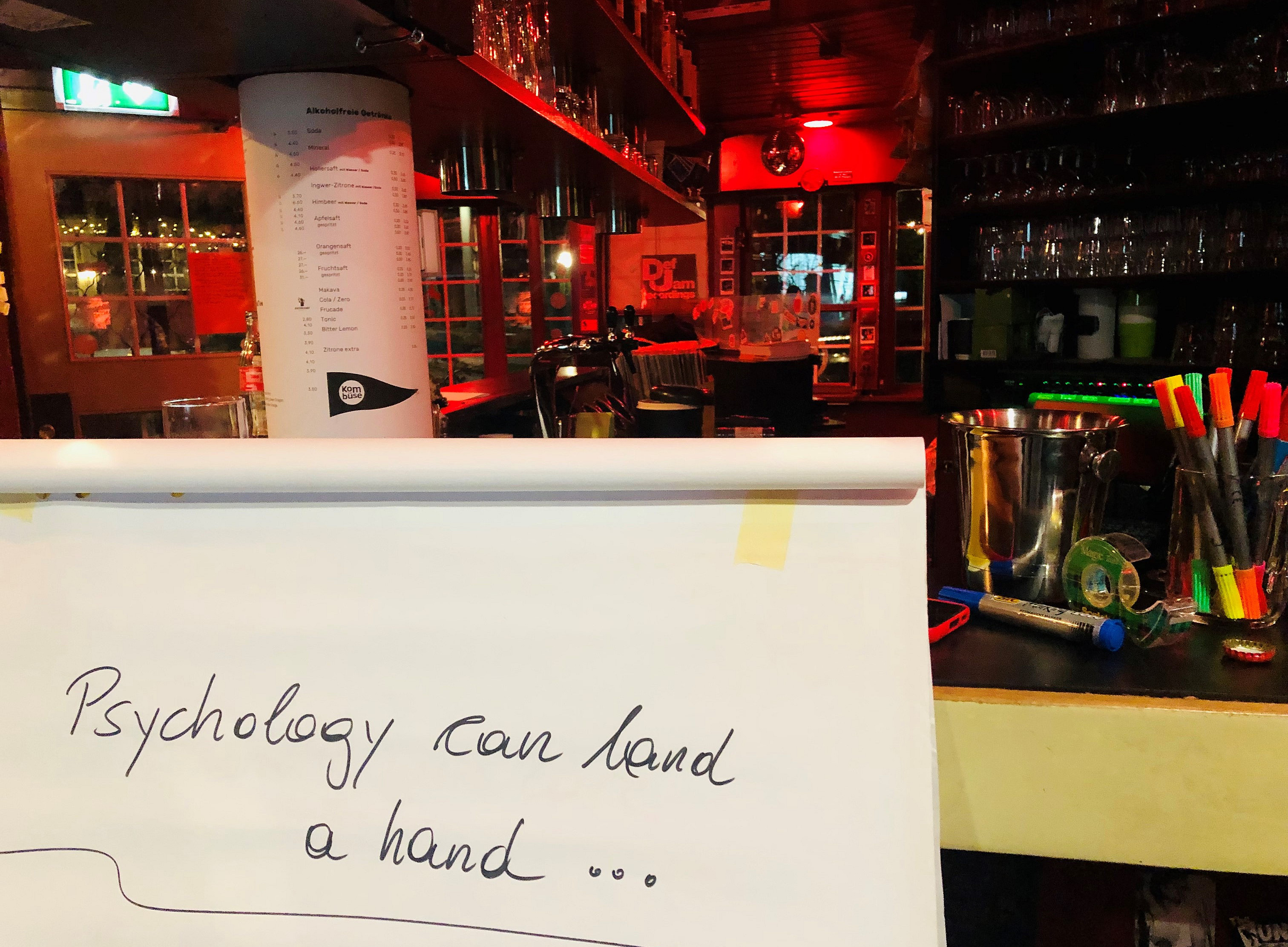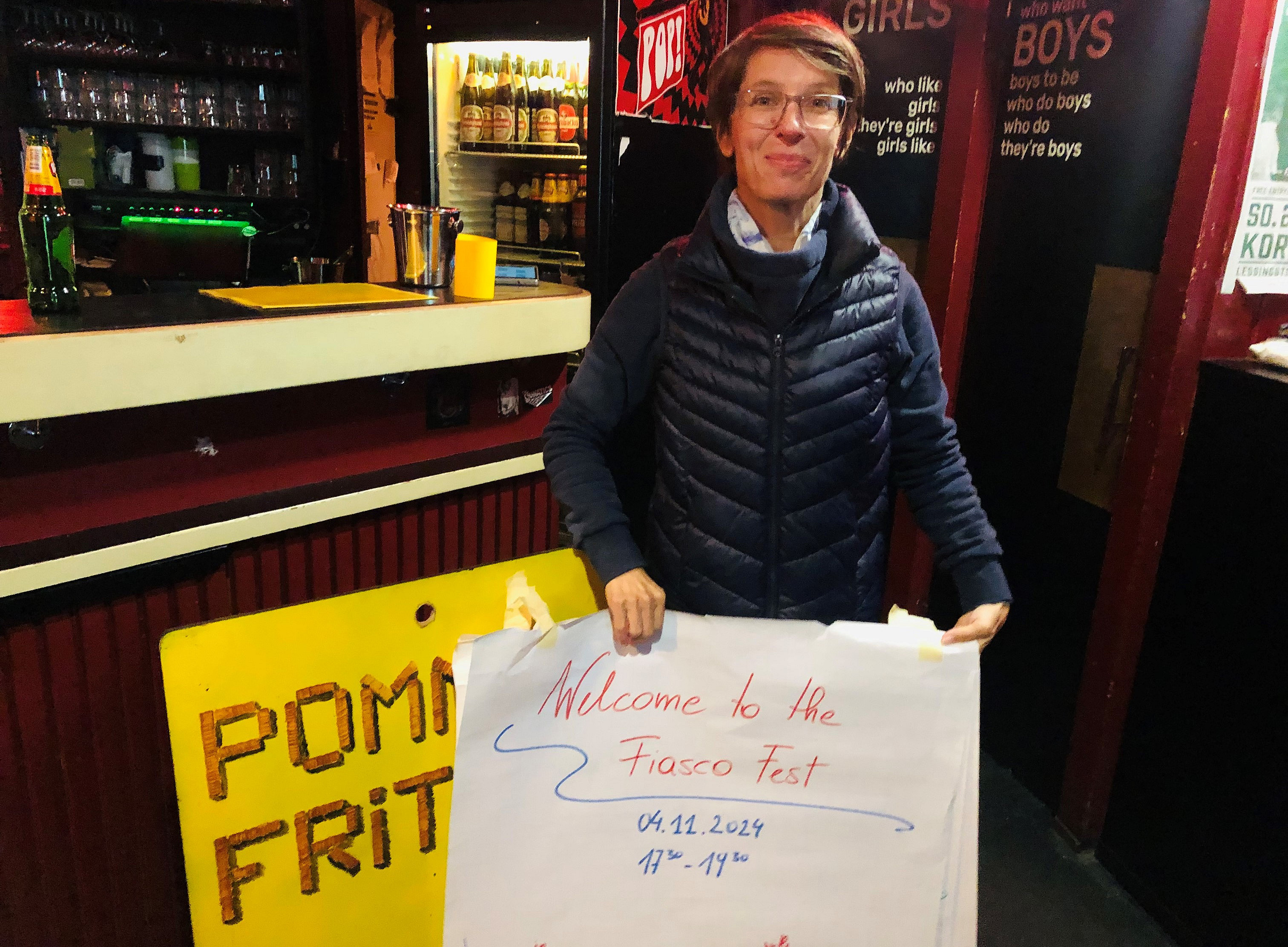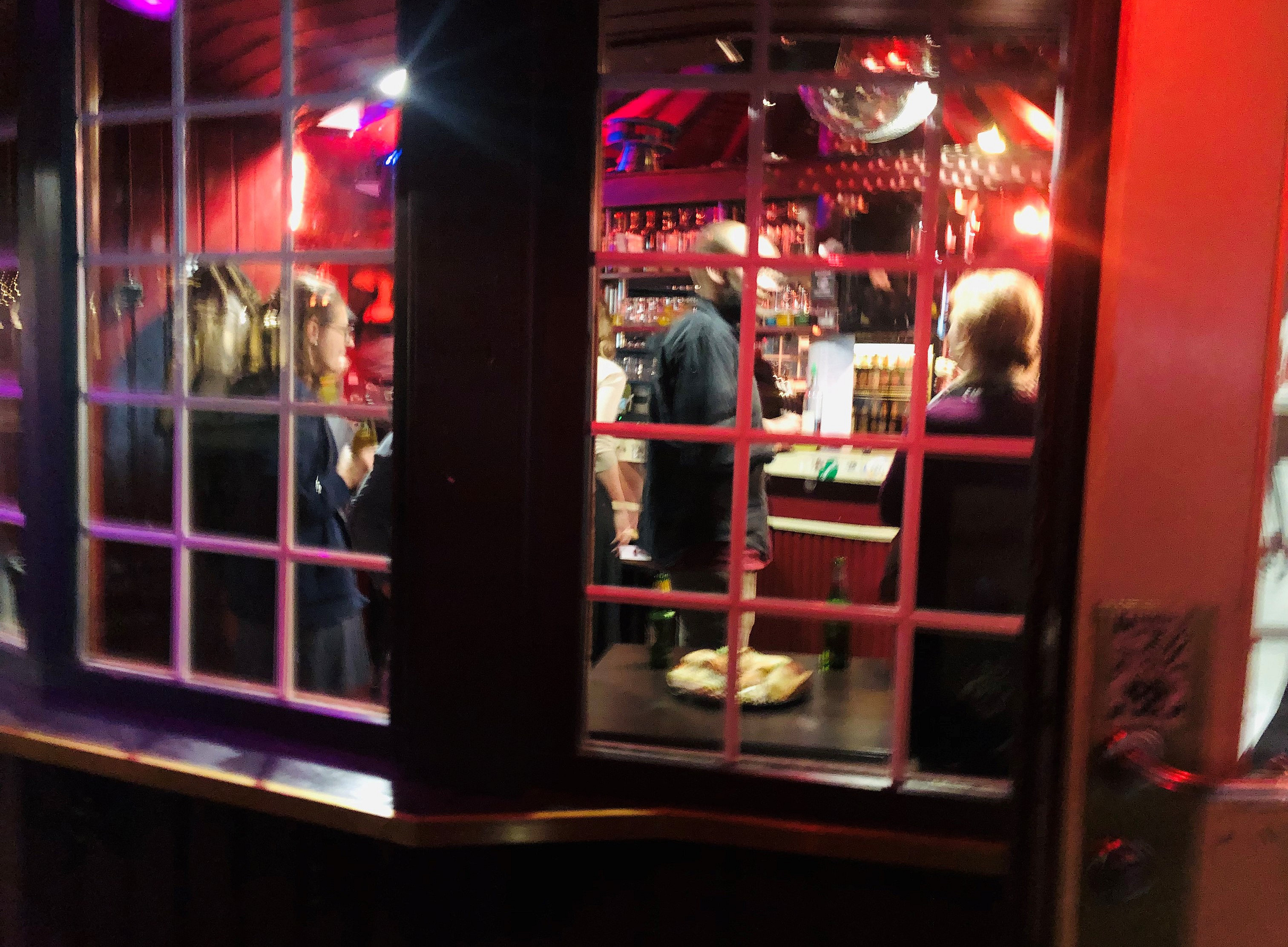Getting out of your normal environment is inspiring - and connecting to fellow researchers even more so!
On November 4, 2024, random but kind strangers (and also some researchers that already knew each other) came together to try something new.
Failures in academia are often perceived as shameful and are not discussed openly. But: "Failure is a core element of research," says psychologist and facilitator of the Fiasco Fest Sabine Bergner. "Because in order to find creative solutions, we have to try out new things without knowing whether they will work."
To change attitudes towards failure, and to foster a supportive community among researchers in Graz, (and in academia overall!) Bergner and Johanna Stadlbauer from the PostDoc Office have launched the "Fiasco Fest" at the University of Graz three years ago. And after two years in the historic glass planting shed of the Graz Botanic Gardens, the party-workshop has moved to a nightclub in 2024!
The researchers (under supervision of Sabine Bergner of course) had the run of the bar for an evening - Kombüse Graz, well known for it's late night revelries. This first Monday in November, it was closed to the public, and pre- and postdoctoral researchers got to go behind the counter, in front of the counter, and onto the dance floor. Music was playing upon arrival and during the mingling afterwards. Sabine Bergner got creative with attaching her flipchart paper to a wooden sign advertising fries. The windows of the bar were perfect for the "twilight exhibition", in which the participants presented their (anonymous) top and flop CVs. There was food and drink, and the low lights and dark interiors contributed to making this a social space for open exchange.
The Fiasco Fest is a three-hour experience lab, designed to provide a safe and brave space for researchers to share (as much or as little as they want of) their stories of setbacks and failures, providing psychological insights and tools that help with coping, enabling researchers to handle their next fiasco with care (and maybe even humor), with the goal of experiencing peer support, and keeping up the creativity, motivation and commitment needed to thrive in their work.
It's important to know that no one is forced to share anything - it's done voluntarily, and anonymously on paper. As the evening progresses, there will be some open discussion, which was described by the participants as very moving. The important end point to the event is the move outside to the "fire pit" (a metal mixing bowl). Everyone gets to light their worst fiascos on fire - those they want to let go. This can prove a cathartic experience, and one that on that Monday night led to a lot of chatting and exchange afterwards.
The Fiasco Fest doesn't glorify resilience. Time and time again, it becomes visible to the participants and the facilitator that career setbacks are often the result of systemic failures, not personal inadequacy. Sharing among peers in the same career stage, facilitated by a person who is an academic herself, means participants will be among those who understand what impact it can have to be rejected for an important job, grant, or have some major experiments go wrong. In a community, participants acknowledge that impact, and learn to move on despite it.
Further reading & resources to handle fiascos:
- Psychosocial support contact points in and around the University of Graz.
- Linktree of resources for when things become too much at work.
- Research article: Common Academic Experiences No One Talks About: Repeated Rejection, Impostor Syndrome, and Burnout by Jaremka, Lisa M. et al. (2020), In: Perspectives on Psychological Science Volume15, 3, 519-543. https://journals.sagepub.com/doi/abs/10.1177/1745691619898848?journalCode=ppsa
- Podcast episode: Dealing With Rejection (Feb 11, 2020: Episode 6), The Professor is In, Karen Kelsky https://theprofessorisin.com/podcast/episode-6-dealing-with-rejection/
(Report: Johanna Stadlbauer, Nov 5, 2024)


